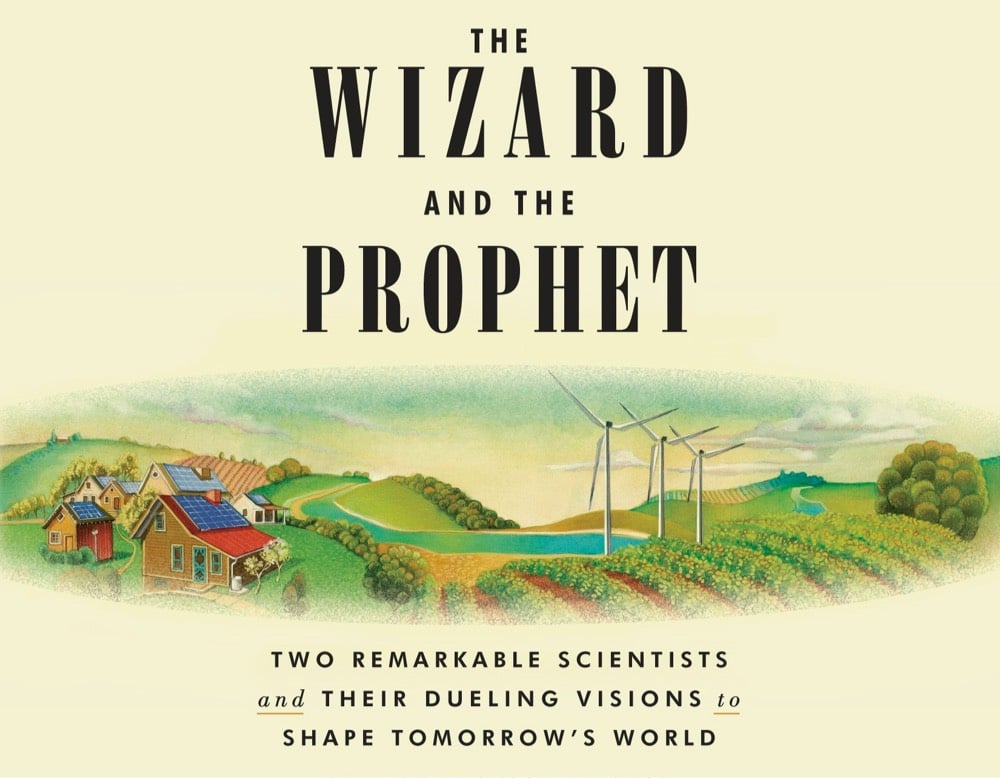I recommend that you read The Wizard and the Prophet
A couple of weeks ago, I finished Charles Mann’s The Wizard and the Prophet. Normally I shy away from terms like “must-read” or “important” when talking about books, but I’m making an exception for this one. The Wizard and the Prophet is an important book, and I urge you to read it. (The chapter on climate change, including its fascinating history, is alone worth the effort.)
Mann is the author of 1491 and 1493 (both excellent, particularly 1491, which is one of my favorite nonfiction books ever) and I’ve been thinking of this one as the natural third part of a trilogy — it easily could have been called 2092. The Wizard and the Prophet is about two “dueling visions” of how humanity can provide food, energy, housing, and the pursuit of happiness to an estimated population of 10 billion in 2050 and beyond. According to Mann, this struggle is exemplified by two men: William Vogt and Norman Bourlag. The book, in a nutshell:
Vogt, born in 1902, laid out the basic ideas for the modern environmental movement. In particular, he founded what the Hampshire College demographer Betsy Hartmann has called “apocalyptic environmentalism” — the belief that unless humankind drastically reduces consumption its growing numbers and appetite will overwhelm the planet’s ecosystems. In best-selling books and powerful speeches, Vogt argued that affluence is not our greatest achievement but our biggest problem. Our prosperity is temporary, he said, because it is based on taking more from Earth than it can give. If we continue, the unavoidable result will be devastation on a global scale, perhaps including our extinction. Cut back! Cut back! was his mantra. Otherwise everyone will lose!
Borlaug, born twelve years later, has become the emblem of what has been termed “techno-optimism” or “cornucopianism” — the view that science and technology, properly applied, can help us produce our way out of our predicament. Exemplifying this idea, Borlaug was the primary figure in the research that in the 1960s created the “Green Revolution,” the combination of high-yielding crop varieties and agronomic techniques that raised grain harvests around the world, helping to avert tens of millions of deaths from hunger. To Borlaug, affluence was not the problem but the solution. Only by getting richer, smarter, and more knowledgeable can humankind create the science that will resolve our environmental dilemmas. Innovate! Innovate! was Borlaug’s cry. Only in that way can everyone win!
Or put more succinctly:
Prophets look at the world as finite, and people as constrained by their environment. Wizards see possibilities as inexhaustible, and humans as wily managers of the planet. One views growth and development as the lot and blessing of our species; others regard stability and preservation as our future and our goal. Wizards regard Earth as a toolbox, its contents freely available for use; Prophets think of the natural world as embodying an overarching order that should not casually be disturbed.
To combat climate change, should we stop flying (as meteorologist Eric Holthaus has urged) & switch to renewable energy or should we capture carbon from coal plants & build nuclear power plants? GMO crops or community-based organic farming? How can 10 billion people be happy and prosperous without ruining the planet?
I came to this book with an open mind, and came away far more informed about the debate but even more unsure about the way forward. The book offers no easy answers — it’s difficult to tell where Mann himself stands on the wizard/prophet continuum (although I would suspect more wizard than prophet, which is likely my leaning as well) — but it does ask many of the right questions. Wizards can order the book from Amazon while Prophets should seek it out at their local bookstore or library.
Further reading: an interview with Mann in Grist; Can Planet Earth Feed 10 Billion People?, an Atlantic article by Mann; The Edge of the Petri Dish, a piece by Mann in The Breakthrough; State of the Species, a 2012 piece by Mann that was an early attempt at W vs P; and The Wizard and the Prophet: On Steven Pinker and Yuval Noah Harari.






Stay Connected